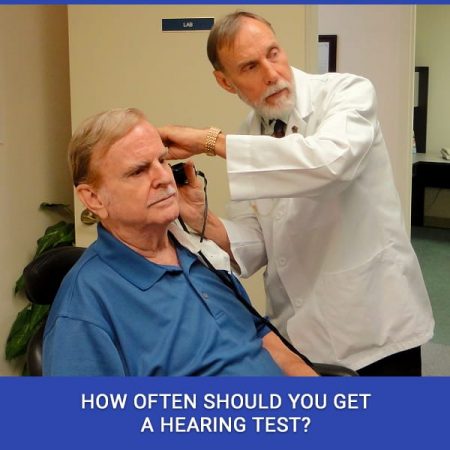 Hearing loss is one of the biggest risks of aging, particularly in adults over the age of 60. Individual risk can vary, however, based on a few factors. The most influential of which are age and occupation. Hearing tests are part of a comprehensive health plan, but exactly how often should you get a hearing test? Well, it depends on a few things, most importantly whether or not you or a loved one have noticed symptoms of hearing loss.
Hearing loss is one of the biggest risks of aging, particularly in adults over the age of 60. Individual risk can vary, however, based on a few factors. The most influential of which are age and occupation. Hearing tests are part of a comprehensive health plan, but exactly how often should you get a hearing test? Well, it depends on a few things, most importantly whether or not you or a loved one have noticed symptoms of hearing loss.
Screening
If you have never had any issues or symptoms related to hearing loss, you’ll most likely need screening as opposed to testing. Screening is simply a routine check for basic symptoms. It can take place via an online hearing test, or in a doctor’s office, and it normally doesn’t take more than a few minutes. Screening is especially important for those who are consistently exposed to high levels of noise, for example, construction workers. Hearing loss develops over time, so regular screening is an important factor in catching it early.
Testing
Testing takes place once you have developed recognizable symptoms of hearing loss. A hearing test is more in-depth than screening. It typically involves sitting in a sound booth to measure the extent of your hearing loss. It is also used to develop a treatment plan in order to mitigate the symptoms.
What Happens Next?
Depending on the care plan developed by your doctor, there are a few possible next steps after being diagnosed with hearing loss. Depending on the extent of your hearing loss, you may be given hearing aids, which come in several varieties. The most important step you can take after developing hearing loss is to monitor yourself for any changes. It may be helpful to rely on friends and family for this, as it can be difficult to monitor hearing changes in yourself.
Hearing Aids
If you are given hearing aids to help relieve your hearing loss symptoms, they’ll need to be check and possibly adjusted regularly. Eventually, they will also need to be replaced. Typically, hearing aids last around three to seven years. If you have a different hearing aid system like a cochlear implant or a bone-anchored hearing system, the timeline will most likely be different, and a more detailed one can be provided by your care provider.
At-Risk Groups
Screening for hearing loss is routine for infants and children and typically done through their school. However, there is some debate among medical professionals over when and how often adults should be screened. In general, most healthy adults don’t need regular screening unless they belong to an at-risk group. Those at the highest risk for hearing loss are older adults (over 60) as well as anyone who works in a high-noise occupation. Anyone exposed to high levels of noise regularly may also benefit screening at least every few years.
Even if you aren’t in an at-risk group if you notice any changes in your hearing or symptoms you should get them checked by a doctor.
Why Should You Get Tested?
Hearing is one of the five senses and losing it can have a detrimental impact on not just your overall health, but also your quality of life. Routine screening can help you spot the symptoms of age or noise-related hearing loss early, making it easier to treat.
If You Have Symptoms
Any symptoms of hearing loss should be looked at by a care provider. If you or a loved one have noticed a change in your hearing, it’s a good idea to consult a professional. If you need help finding a provider, Countryside Hearing Aid Services has a searchable directory that can help you access care in your area.
Picture Credit: Pixabay
